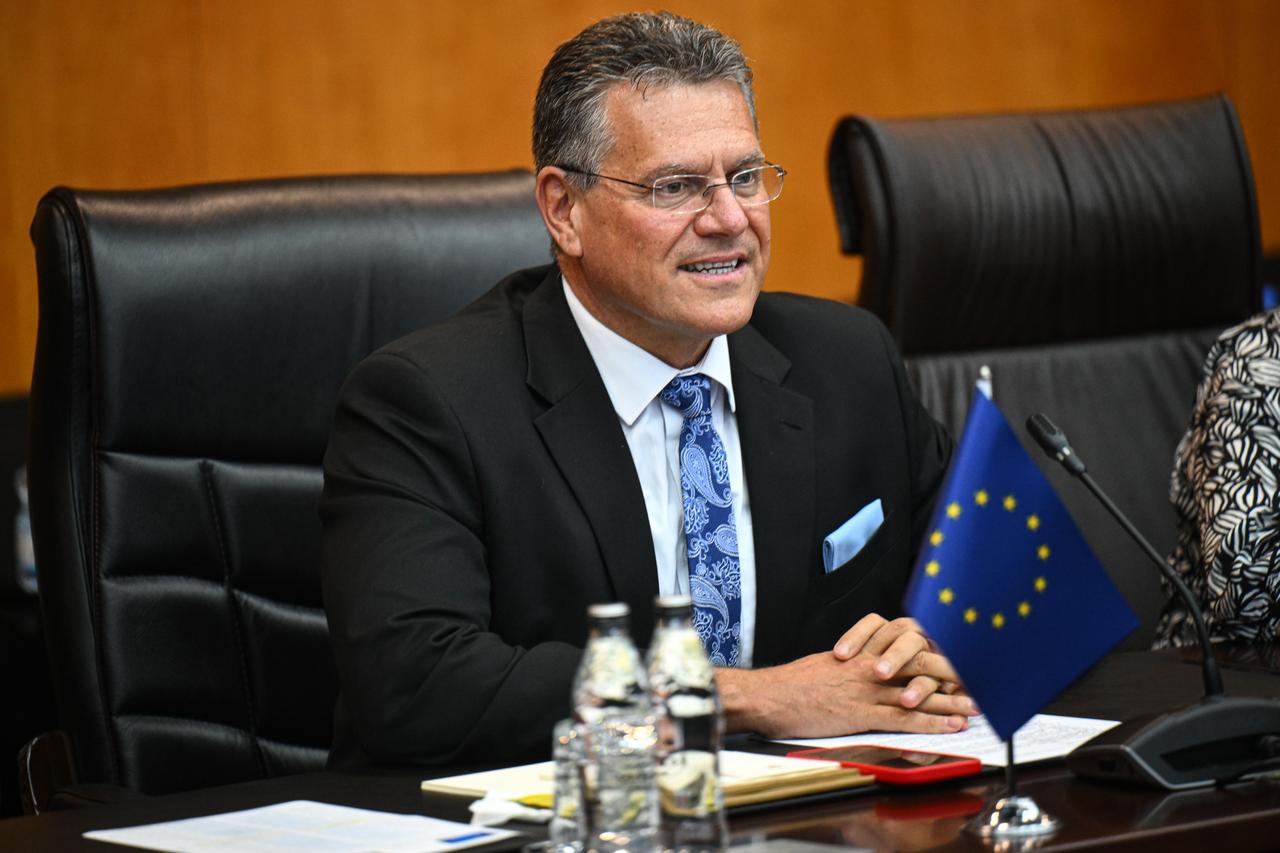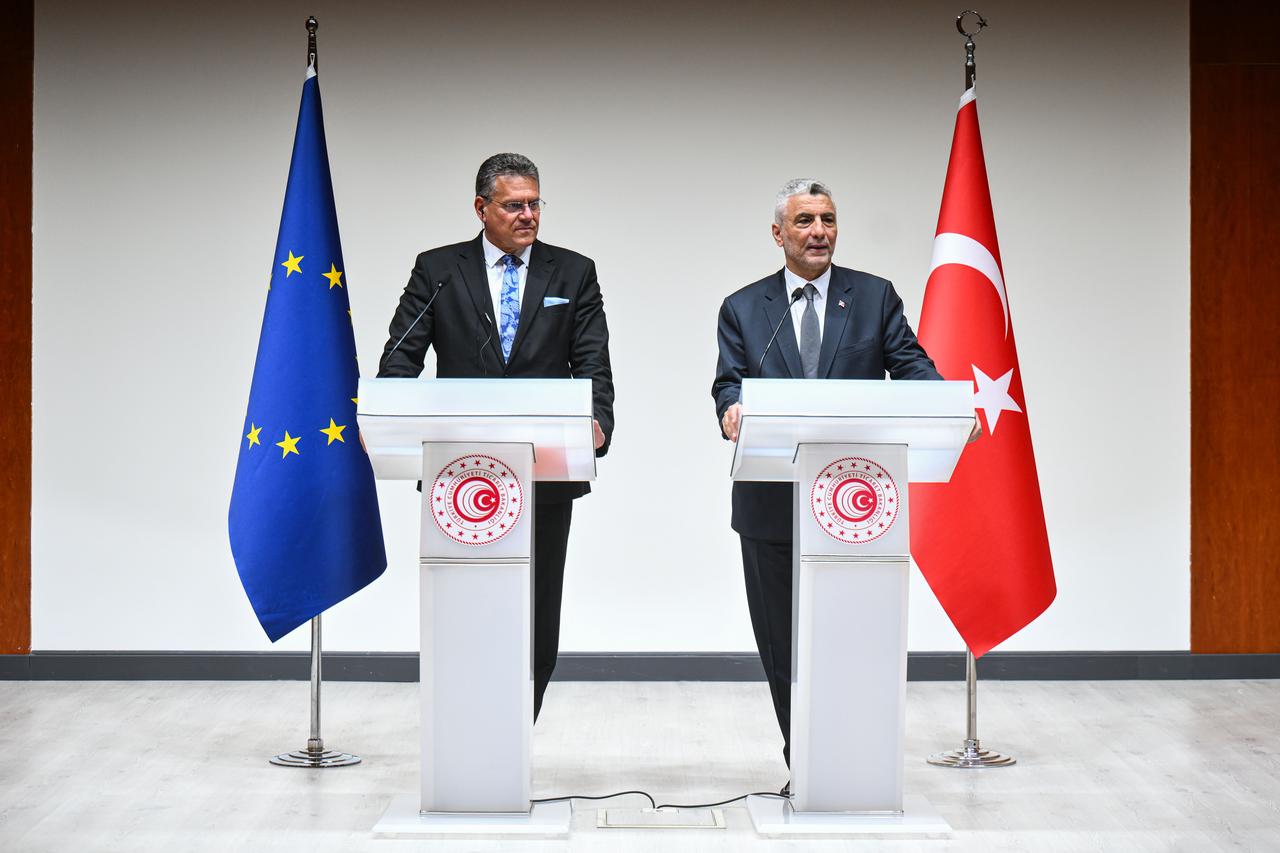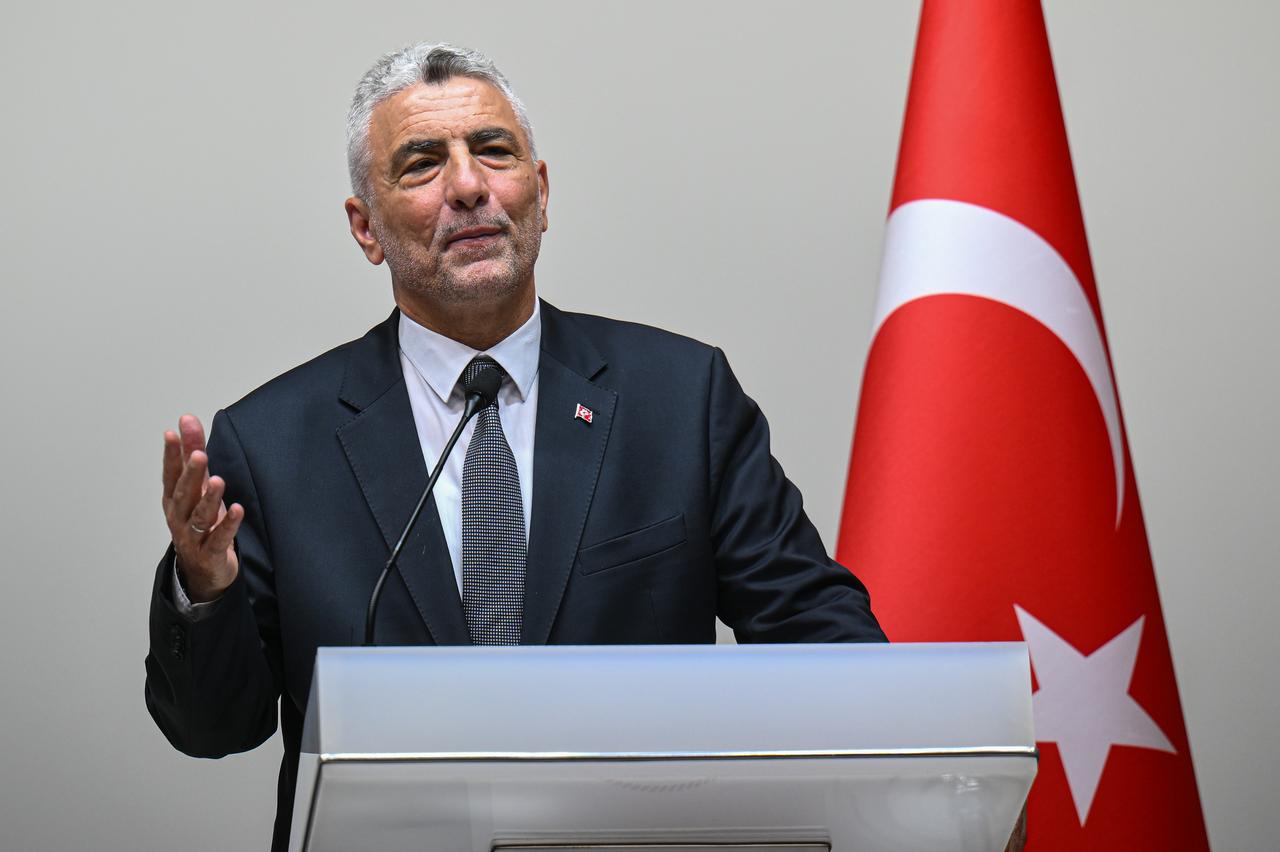
The European Union and Türkiye have achieved “meaningful progress” in eliminating three of the six main trade barriers that have long hindered economic exchange, European Commission Vice President Maros Sefcovic said on Tuesday
Speaking after the Türkiye–EU High-Level Trade Dialogue in Ankara, Sefcovic confirmed that the sides are close to finalizing agreements on beef imports, Türkiye’s electronic surveillance system, TAREKS, and inspection measures affecting EU products.
“We are pleased to see tangible outcomes,” Sefcovic stated, noting that the Customs Union continues to provide a solid platform for navigating global trade disruptions. He added that Türkiye, both a customs union partner and an EU candidate country, plays a key role in the bloc’s economic future.

Trade Minister Omer Bolat highlighted that the Customs Union, in place since 1996, no longer aligns with the pace and scope of modern global commerce.
“We cannot manage 2025 trade with 30-year-old rules,” Bolat stressed, adding that both sides acknowledge the need to modernize the agreement.
He emphasized that the EU Council should not overlook the technical progress already achieved with the European Commission.
The Customs Union has also drawn criticism in Turkish public opinion, largely because it facilitates tariff-free trade in industrial goods but excludes key sectors such as services, public procurement, and agriculture.
Moreover, Türkiye does not have a say in the EU’s external trade agreements, which have led to regulatory misalignments and concerns over competitiveness.

Addressing non-tariff barriers, Bolat underlined the urgent need to ease visa restrictions for businesspeople, drivers, students, and experts.
He said EU institutions and member states have acknowledged this issue and are preparing a new “threshold system” to accelerate visa procedures. “This would ensure smoother flows, which we view as significant progress,” he said.
Both sides also discussed strengthening cooperation in green and digital transformation. Bolat pointed to shared value chains and Türkiye’s alignment with the EU’s sustainability goals as key areas for future work.
“We are determined to strengthen this relationship,” Sefcovic added, reaffirming Türkiye’s strategic importance.
He noted that Türkiye is already the EU’s fifth-largest trading partner and that expanding the partnership would benefit both sides in an increasingly uncertain global environment.